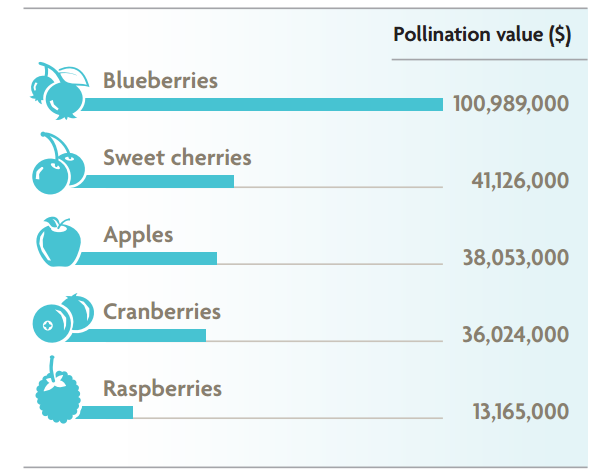While the plight of bee populations around the world has been well-documented, a new report says those in British Columbia are thriving.
READ MORE: How you can help save the bees this spring

Entitled “Sweet Deal: The value of bees to British Columbia’s economy,” the Vancity credit union report says the province has one of the highest colony survival rates in North America, with bees contributing close to $500 million in products and pollinating services each year.
“B.C. is emerging as a leader when it comes to bees and we should do everything we can to grow this important industry,” said William Azaroff, Vancity’s vice-president of community investment.
Reasons for B.C.’s thriving bee population include our moderate climate, and the fact the majority of crops in the province are well pollinated.

Get daily National news
But another significant factor is the number of beekeepers here – from 1,742 in 2009 to 2,363 last year, with a notable increase of beekeepers under 40, according to the report.
In total, B.C. has over 45,000 bee colonies, which generated over 3.6 million pounds of honey last year.

The province’s most valuable crop for bee pollination is blueberries, followed by cherries, apples, cranberries and raspberries.

The report recommends the provincial government restrict pesticide use on conventional farms, while asking farmers to do their part to improve habitats for wild bees.
The full report can be read here.
READ MORE: How the pesticide believed to be killing the bees could be affecting humans
- No compensation for Vancouver businesses affected by Broadway Subway Project
- B.C. attorney general stands by ICBC’s no-fault model, says it’s working
- Man accused of violating a horse at Vernon equestrian centre arrested
- West Vancouver police release composite photo, seeking info about historic death








Comments